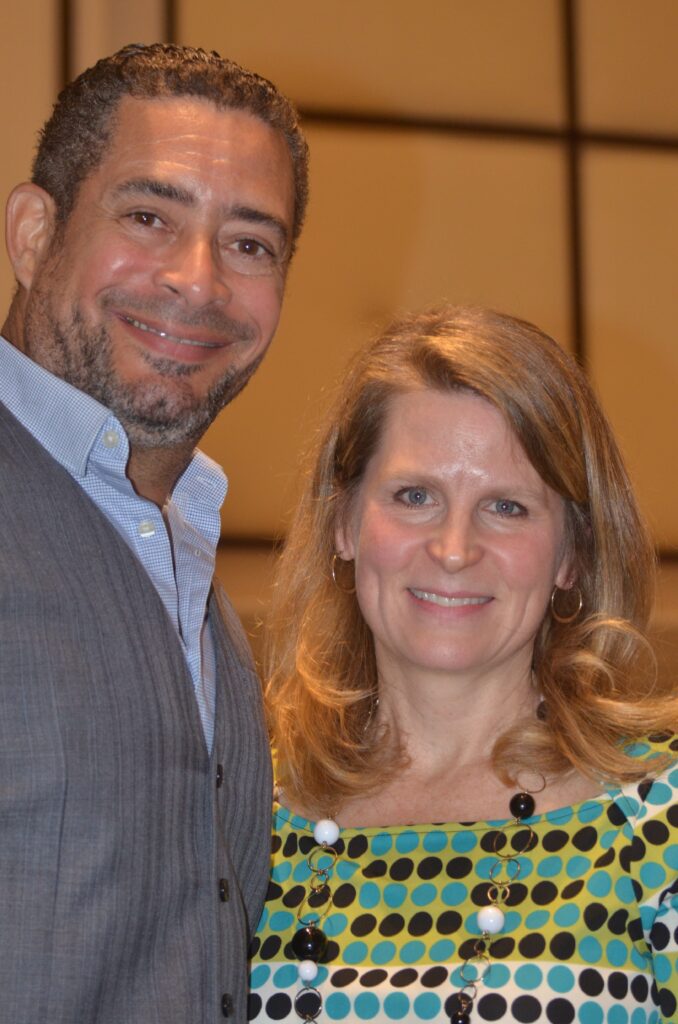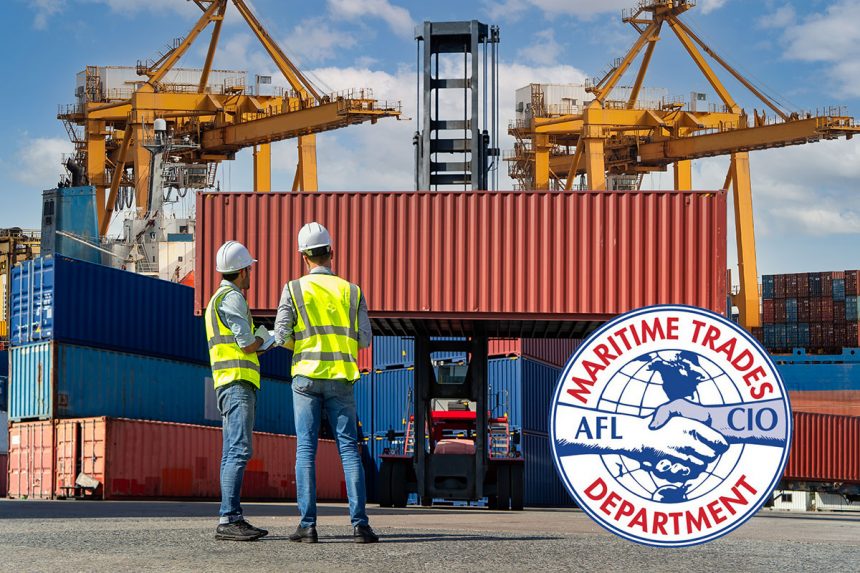
The second-ranking official from the AFL-CIO encouraged the MTD Executive Board to examine key aspects of evolving workplace technology while not losing sight of the power of solidarity.
AFL-CIO Secretary-Treasurer Liz Shuler opened her speech February 21 by thanking MTD President Michael Sacco for his leadership. She then spoke about the important tasks that the MTD and its affiliates handle, referencing the session’s prior speakers.
Shuler said, “The work that you do is truly leading our Labor Movement, and as I watch the presentations and the slide shows and all of the cataloging of the work that goes on in this country. You make this country run. I think it’s a little-known secret, and sometimes we don’t get to recognize and appreciate the work that you do enough.”
She then spoke on the future of work, and preparing for the future of labor in America: “Work is changing … and we need to think about how our unions are going to change with it. How are we going to modernize? How are we going to grow?”
Shuler detailed several steps the federation is taking to incorporate cutting-edge technology for the betterment of workers. She said the labor movement supports efficiency and advancement, but also stands up for the roles of working families moving forward.
The secretary-treasurer then described recent worker actions by teachers and hotel workers, respectively. The successful strikes serve as reminders that collective action is effective.
“Even though there’s this narrative in our country around rugged individualism and people pulling themselves up by the bootstraps, yes, that is part of our culture as Americans,” she continued. “But we also know that we are stronger together. And no one knows this better than the Labor Movement. It’s what we stand for, especially the Maritime Trades unions.”
She also credited the MTD and its affiliates and Port Councils for their hurricane relief efforts that began in 2017. “When Hurricanes Irma, Harvey and Maria hit, you sprang into action,” Shuler recalled. “And it can’t be said enough, the contribution that you made, because even before the storms hit Puerto Rico and the Virgin Islands, your members were loading and unloading U.S.-flagged and -crewed ships and barges to help the islands prepare for the storms. That was before they hit. And then after the storms, you came through again, working with Jones Act, union-contracted companies to deliver and offload more than 40,000 containers full of equipment to help restore the islands’ power and water and infrastructure and public services, not to mention life-saving supplies. Thank you.
“But you didn’t stop there,” she added. “Of course, U.S.-flag ships with Seafarer crews worked with our friends at the AFT (American Federation of Teachers) to provide more than 100,000 water filters to the people of Puerto Rico. That was well after the storm, and of course, you delivered more than 15,000 books to the schoolchildren in the Virgin Islands, all while fending off attacks on the Jones Act. We all know, during disasters, that’s when they come attacking bedrock labor protections. We’ve seen it before, and I’m sure we’ll see it again.”
Shuler pointed out that public opinion of unions is at a 20-year high, with 62 percent of Americans saying they back organized labor, according to a recent Gallup poll.
Additionally, she provided data on union training, and used the MTD-affiliated Seafarers Paul Hall Center for Maritime Training and Education as an example, saying, “The Labor Movement is the second-largest provider of training in this country, behind the U.S. military…. We’re the ones training and upgrading people’s skills to get them into better jobs. And every time I go to the Paul Hall Center out in Piney Point, Maryland, I am reminded of this. And I marvel the technology you use and the programs you have. More than 70 U.S. Coast Guard-approved courses, more than 17,000 apprentices trained, more than 135,000 skills upgrades and more than 2,000 high school diplomas. That deserves a round of applause!”
She concluded, “Our role in creating the highly skilled, best-trained workforce in this country is the key to the future of the Labor Movement. I say that because we have our apprenticeship programs, we have our job training programs. When those programs grow, and we get more workers in, the Labor Movement grows with it, and employers are supplied with the highest-caliber workers that Labor can offer.”
The MTD Executive Board unanimously approved the following statement:
Including the Human Element as Technology Moves Forward
When we gathered for our convention in 2017, the novelty of totally autonomous vessels sailing the world’s waterways was beginning to move from science fiction to the realm of reality. As we meet here today, several European-based firms currently are testing crewless vessels.
If we have learned one thing over the years, it is that you cannot stop progress. In our industry, the norm 30 years ago provided crews on containerships and tankers somewhere in the range of 35 to 40 mariners top to bottom. Today, as technology develops into automated systems, crew sizes for vessels three-to-four times larger are in the 18-22 range.
Automation should be a tool to assist workers in making their jobs safer and more efficient – not a means to replace the worker. But we see automated systems being used together to do that very thing, replace the worker. The recently published U.K. Maritime Growth Study and Maritime in 2050 estimates that by 2030 as many as eight million jobs across all commercial sectors will be lost due to increased use of robotics.
In October, the delegates to the International Transport Workers’ Federation Congress stood in solidarity to demand that workers and the need for jobs be a part of the discussion regarding automation. Delegates viewed with deep suspicion the concept that all modes of transportation (sea, air, rail and highway) could be operated without the control of humans. Never mind the initial concerns regarding safety (as we’ve already seen in early fatalities of driverless automobiles), how will workers find new jobs?
As systems and technology evolve, so must workers and their unions. We need to identify the new opportunities that present themselves. We must develop and provide training and education to prepare our members for these new opportunities. To be able to do this, we – Labor, the workers – must be part of the discussion on how to keep our members relevant so they can evolve with the technology and secure their future work. To date, technology developers have left Labor and workers out of the discussion. It is time we demand to be part of this discussion.
Automation isn’t just affecting transportation. After the tremendous success of last year’s “One Job Should Be Enough” campaign by hotel workers at Marriott properties, some hotels have started testing robots to replace housekeepers
These and many other examples are a primary concern of the AFL-CIO’s Future of Work study. The Labor Movement wants to make sure people and their needs are considered and understood as change continues to affect everyday life.
In 2017, MTD convention delegates adopted a resolution entitled “Automation” which sought “new technologies being introduced into our industry are done with safety in the forefront of planning, and… to stand for our members and other workers to make sure they reap the benefits of such change and are not cast overboard.”
These positions remain a focus for the MTD, its affiliates and its Port Maritime Councils. The human element must be as important as financial factors and convenience when change is considered and implemented.

